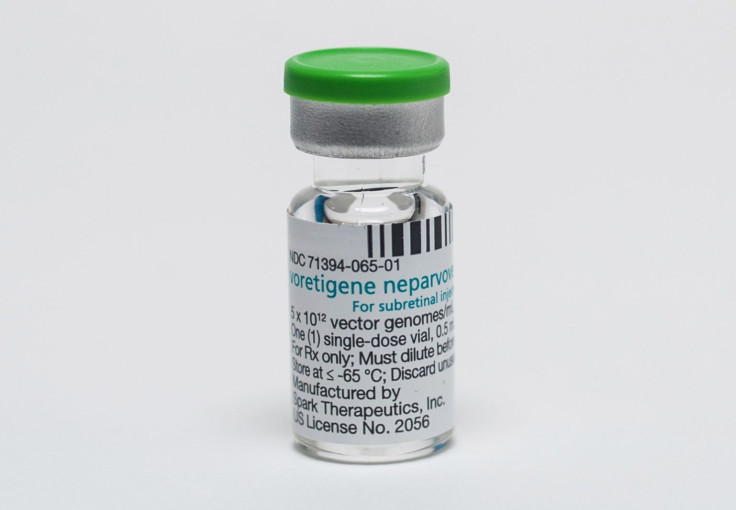Blindness Gene Therapy Becomes Most Expensive Medicine In U.S.

With a sticker price of $850,000, a gene therapy for blindness will be the most expensive medicine sold in the United States.
The treatment called Luxturna is manufactured by Spark Therapeutics and helps treat Leber congenital aumaurosis, an inherited condition that leads to blindness. The rare condition only affects two to three people per 100,000. The treatment was expected to cost $1 million, but the company said it brought prices down over concerns of accessibility to the drug.
“We wanted to balance the value and the affordability concerns with a responsible price that would ensure access to patients,” said Jeffrey Marrazzo in an interview Wednesday.
The drug received approval from the U.S. Food and Drug Administration in December, and given its success, most insurers are likely to cover the treatment.
“If they decided not to cover it they would immediately have to face negative publicity,” said Meredith Rosenthal, a professor of health economics at Harvard University to the Toronto Star.
To further allay concerns over the cost of the drug, Philadelphia-based Spark will use unconventional pricing models and schemes with insurers. Spark reached an agreement with insurer Harvard Pilgrim Wednesday on a rebates program to reimburse the insurer a portion of the procedure if patients don’t see the expected improvement in vision.
“As far as the price, and the structures to pay the price, I think it’s all pretty much in line with what we’re seeing in other innovative therapies,” said Dr. Stuart Orkin, a pediatric oncologist at the Dana-Farber Cancer Institute and Boston Children’s Hospital to health website STAT. “I do applaud them for thinking through the payment schemes. It’s better than if they had just put out a price and said, you know, ‘You’re paying it.'”
Luxturna, Spark argues, is much cheaper in the long run than a lifetime of blindness. Luxturna is injected into both eyes to provide patients with a functioning copy of a gene that is defective in their eyes. The non-profit Institute for Clinical and Economic Review, however, said that the drug would need to be far cheaper to be a cost-effective treatment.
At least one medicine in Europe was more expensive, surpassing the $1 million mark, but the gene therapy for a rare protein disorder has been discontinued.
Published by Medicaldaily.com



























